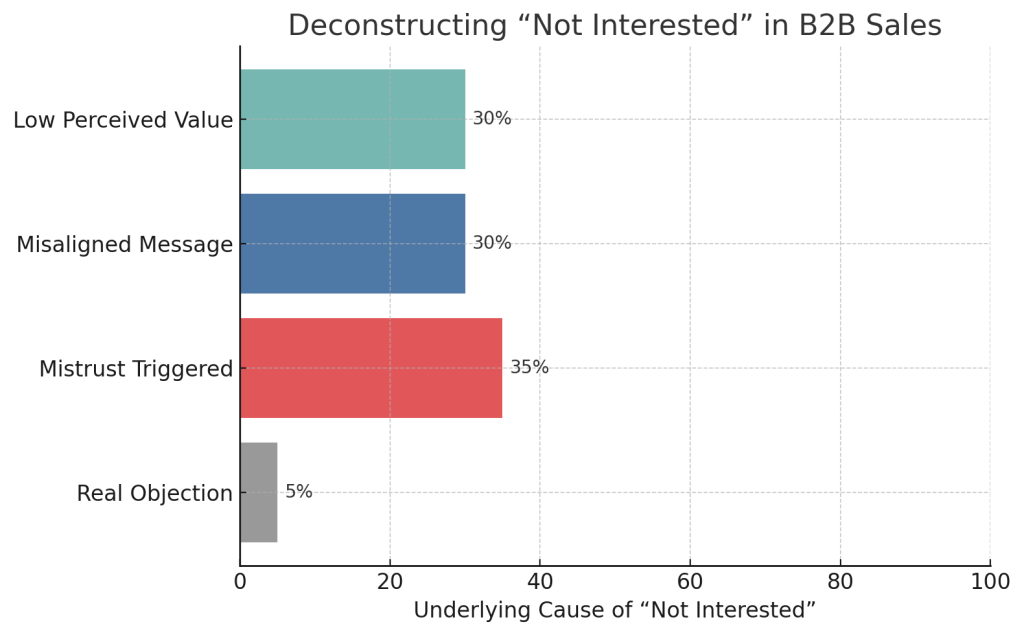Salespeople in the business of selling growth, whether through systems, marketing, automation, or enablement, often encounter the phrase “not interested.” It usually arrives early in the interaction, before the prospect fully understands what’s being offered. Many treat it as a final rejection. It isn’t.
A skilled growth advisor doesn’t see objections as resistance; they see them as information.
Karim Mokhtar
“No interest” in sales, marketing, or business growth? That doesn’t hold up under scrutiny. Very few rational companies reject the concept of better revenue, faster acquisition, or operational efficiency. What they’re actually saying is something else. And if you don’t understand that, you’re selling in the dark.
Most of the time, “not interested” means one of three things:
First, the salesperson has failed to build trust. The lead has grouped them with the dozens of low-effort outreach attempts they receive each week. They’re reacting to a perceived risk, not the offer itself. They’ve heard promises before. They’ve wasted time on unqualified vendors. They’ve become allergic to words like “solutions” and “scale.”
Second, the message didn’t land. The salesperson talked about deliverables that don’t align with what the lead sees as an immediate problem. You offered content marketing when they’re bleeding from operational inefficiencies. You pitched CRM upgrades when they’re still struggling to get consistent meetings. That kind of mismatch doesn’t provoke interest, it provokes disconnect.
Third, the lead simply didn’t see enough value fast enough. Maybe the opening line didn’t address a real business tension. Maybe the offer was buried under jargon. Maybe you sounded like someone trying to sell software, not solve something. In that case, “not interested” means “I don’t have time for this,” not “this will never matter to me.”
None of these situations call for pushback. They call for adjustment, reframing the conversation, asking the right question, changing the pace, and sometimes, stepping back and offering something lighter, like a brief overview or case example, rather than forcing a call that hasn’t been earned yet.
What doesn’t work is retreating. Or worse, assuming the prospect is blind to opportunity.
A skilled growth advisor doesn’t see objections as resistance; they see them as information. “Not interested” is one of the most valuable signals you can get. It tells you you’ve missed something: timing, positioning, tone, urgency. It invites refinement. If you take it personally or walk away too quickly, you’ll never hear what the lead was really trying to protect: their time, their attention, or their control over the conversation.
Every meaningful deal starts in a space of uncertainty. Your job isn’t to force interest, it’s to create relevance. That happens through insight, patience, and precision. And it starts the moment someone tells you they’re not interested.






